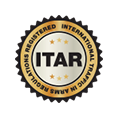
Because you invest a lot of time, money, and trust in your equipment, it’s worth knowing exactly what you’re getting. As professionals working alongside those in highly technical industries like manufacturing, aerospace, medical fields, and the energy sector, we know the importance of being able to rely on your machines to do the job to the utmost degree of quality. That’s why deciding on what to purchase in the first place can be daunting, especially when it’s an investment. If you’re looking for an industrial 3D scanner, there are several things to take into account. Whether you are seeking to rent or purchase your own industrial 3D scanner or work with us to create a scan or series of scans, we can tell you what you need to know about selecting the best scanner for your needs.
Traits of High-Quality 3D Scanners
There are many different manufacturers and styles of 3D scanners, all of which can create an exact digital scan with accompanying data of an object, structure, or system. Scanning, a form of non-contact measurement, is done using lasers or white light to capture a detailed, structural digital model of something. An Industrial 3D scanner, utilizing laser or structured light, is an essential tool in a number of different circumstances.
So whether you need an industrial scanner for reverse engineering a part, mapping and planning, design adjustments, archiving, researching, or any other application, there are options available to you. Depending on your scanning needs, certain attributes, such as accuracy, will matter more than others. Read on for descriptions of the traits of high-quality 3D scanners and examples of what they can do to help you narrow down which scanner is right for you.
Accuracy
For a 3D scan to be useful, it must be accurate. Accuracy refers to how closely a scan captures the exact scalar and volumetric measurements of what it is scanning. The best thing about 3D scanners over older CMM techniques is the potential for hyper-accurate digital models, which in turn allow you the freedom to recalibrate or innovate based on the best information possible.
For example, for manufacturing applications, accurate scans will ensure better efficiency throughout the whole process. This is because if a part is no longer matching the precise measurement of the model at the quality assessment stage, you will know it is time to alert quality control and assess machines. This reduces production downtime and mitigates rework. Detecting deviations in manufacturing is just one of many applications where accuracy is paramount. However, when millimeters matter, having a high-quality scanner is a necessity.
Resolution
A scan is only as good as the digital technology used to access it; this is where resolution comes in. An unclear resolution makes it hard to see what’s really going on. We’re used to seeing high-resolution images on new electronics like HD-TVs and smartphones. Resolution matters in 3D scanning contexts as well, though for reasons that go beyond mere aesthetics.
In 3D scanning, resolution has to do with the closeness of the points that make up the digitally rendered version of whatever was scanned, be it a tiny object or a big space. High resolution is incredibly important when very fine levels of detail are necessary. This 3D version of resolution is commonly called mesh resolution, which refers to the 3d mesh of the object. Just like pixels are made up of squares, 3D mesh is made up of polygons to more accurately render the three-dimensional shapes of whatever was scanned. Think of it this way; lower-resolution scans can end up with a “pixelated” appearance, making details harder to determine. This is why the resolution is an important consideration when thinking about scanner quality.
Ease of Use
An overlooked element when considering the quality is how well a tool will fit into your workflow. Do you need to have access to highly accurate results as quickly as possible? Does your work require maximum portability in a scanner? What kind of software does it require, and how often is this software updated? How much time will you need to spend training your team to use the 3D scanner? Keep in mind that ease of use is connected not only to the physical quality and specifications of the device, but the quality of your experience using the device.
Right for Your Application
Because we work with an extremely wide range of industries, we are experts in the applications and maintenance of a range of metrology equipment. This includes an array of details like the size of what you are scanning, where you will be using it, and the accompanying software. We partner with leading manufacturers in the metrology industry because we believe that valuable 3D scanner options are crucial to your workflow, whether on the shop floor or out in the field. We want to guide those whose work requires a 3D scanner toward the right one. 3D scanner industrial applications may include manufacturing processes that create many of the same part or object based on the scan, whereas other applications can range as far as scanning a building to facilitate conservation efforts. Depending on what you are measuring, you may need long range scanning, mid to short-range scanning, or ultra-small component CT scanning.
Exact Metrology Has an Industrial 3d Scanner for You
Whether you’re concerned about industrial 3D scanner price, 3D laser scanner industrial settings, and whether a 3D scanner can enhance your workflow, or wonder what the best industrial 3D scanner is for your needs, Exact Metrology has you covered. Contact us today to learn more about Exact Metrology’s 3D scanning services.





